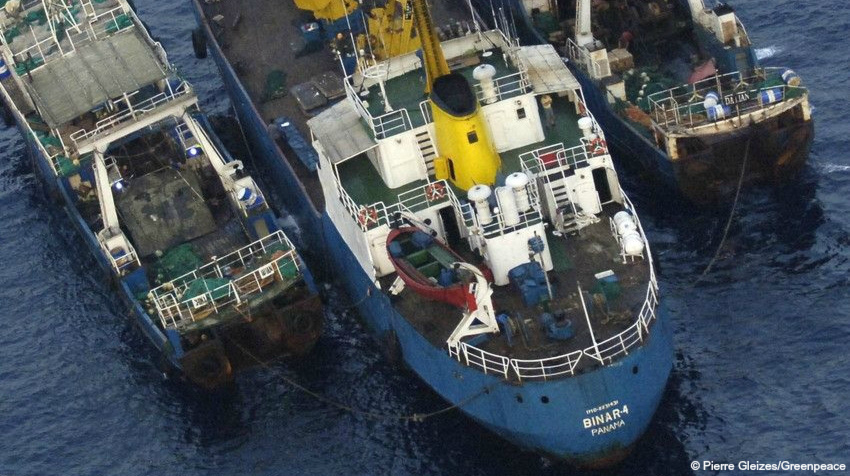
EJF calls on a ban on transhipment at sea in West Africa
EJF has launched a new briefing on transhipment at sea. Using evidence EJF has gathered through its monitoring work in West Africa, this new briefing highlights the lack of control in authorised transhipments and the way that illegal transhipment at sea is widely used by IUU fishing vessels to gain access to market.
In West Africa, transhipments at sea are a common practice. They are sometimes authorised by coastal States, but in many instances they are carried out illegally. EJF believes that whether or not authorised, transhipments at sea frequently facilitate the laundering of illegal fish due to the inability of coastal and flag States authorities to monitor how, by whom and where transferred fish was caught. At-sea transhipments are a key component of the lack of transparency in global fisheries that enables IUU fishing.
Using evidence EJF has gathered through its monitoring work in West Africa, this new briefing highlights the lack of control in authorised transhipments and the way that illegal transhipment at sea is widely used by IUU fishing vessels to gain access to market. The briefing provides different recommendations to address the issue of transhipments at sea: on the one hand, coastal and flag States should ban transhipments at sea in West Africa. On the other hand, the EU should close access to the European market to fish that was transhipped at sea without effective monitoring.
EJF is calling for urgent action to address the issue of transhipments at sea, which will assist in the eradication of pirate fishing. At the time of writing, EJF was investigating the illegal transhipment of two vessels in West Africa which were not authorized by their flag State to tranship. We will be reporting on the outcomes of this investigation and others soon.
SIGN UP FOR OUR EMAILS AND STAY UP TO DATE WITH EJF